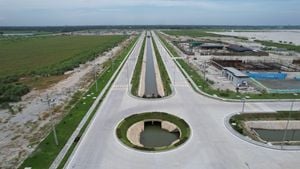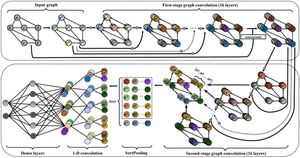Hong Kong Disneyland Resort has achieved profitability for the first time since the 2013-14 financial year, signaling positive trends for the territory's economy as it recovers from past turmoil. Lawmaker Michael Tien announced this milestone recently, reporting over one million more visitors have flocked to the park, which is embarking on new developments to maintain its momentum.
Tien, who met with Disneyland management, expressed optimism about the park's operations during the 2023-24 financial year, characterizing it as “a record-breaking year.” Providing some thrilling figures, he pointed out the park's profit was more than double the previous year’s earnings, which had already seen significant recovery after the pandemic's harsh grip. Notably, the last time the amusement park was profitable was nearly ten years ago, showcasing how it has come full circle.
According to Tien, Hong Kong Disneyland's revenue for the fiscal year from October 2023 to September 2024 surged by 50% compared to the prior year. He shared on social media, "When I spoke to them recently, they said they do not need to request funding from the Legislative Council for the time being, indicating confidence to develop new attractions and invest in expansion." Following years of struggles marked by losses due to the anti-extradition protests and later the COVID-19 pandemic, rising attendance is promising, particularly driven by tourists from mainland China.
Yet, the city's fiscal situation remains precarious, prompting discussions on potential salary cuts for about 173,000 government employees as measures to tackle the HK$100 billion deficit. Civil service salaries accounted for approximately 20% of total government expenditures over the past five years. The proposal has gathered support amid calls for reform aimed at ensuring fiscal stability and improving government effectiveness—a concern highlighted by the South China Morning Post.
The newspaper analyzed how much Hong Kong spends on civil servant salaries, which have consistently risen over the last 25 financial years, implicatively hinting at growing discontent over public finances. A possible freeze or cut could also be seen as part of broader measures needed to address spending inefficiencies within the government. The Post noted, "During 2023-24, about HK$94.54 billion, or 60.5% of staff expenditure, went toward paying salaries and allowances," illustrating the significant financial weight of manpower expenses on the city’s resources.
Adding to the mix of economic strategies is the Hong Kong government's focus on enhancing its offerings for Islamic finance. Recently, Chief Executive John Lee has been courting opportunities with nations where Muslim populations exercise considerable influence over business and finance. The city is implementing changes to its talent immigration scheme to fast-track professionals with expertise in the Islamic market. This move aims to tap growing sectors where religious compliance fosters financial instruments free from interest—aligning with Sharia law.
According to Lee, enhancing such services is beneficial not only for diversifying Hong Kong's economy but also to cater to the growing international demand for Islamic finance. The editorial from the South China Morning Post heralded this shift, calling it "a wise move" to adapt the city’s financial offerings for the broader emergent economies representing Muslim-majority countries, thereby making sure Hong Kong solidifies its status as the region’s financial hub.
Another component of the discussion around Hong Kong’s economic resurgence is the development of new science parks to fuel innovation and technology growth. Secretary for Innovation, Technology and Industry Sun Dong stated at a recent conference, "The HKSAR government is fully committed to creating a ... business-friendly environment," highlighting the importance of establishing frameworks conducive to growth. He reiterated the collaboration between the government and innovation sectors as key to developing this ecosystem, ensuring new avenues for local enterprises.
The initiatives include the Hetao Hong Kong Park and the San Tin Technopole, among others, intended to serve as catalysts for technological advancement within the city. Sun pointed out the government’s commitment to promoting smart manufacturing, with substantial financial backing available for businesses willing to establish smart production facilities. With grants made available recently, they aim to transform traditional sectors, aligning them with modern industrial processes.
Sun's vision aligns with broader objectives to make Hong Kong more competitive globally, as he declared support for over 100 smart production lines already funded through various government schemes. Each of these projects aims to boost contributions to local and global economies, reinforcing the importance of innovation as Hong Kong navigates its post-pandemic recovery.
Overall, as the economic climate improves, marked by successes at Disneyland, potential fiscal reforms, developing sectors like Islamic finance, and strategic investments in technology, Hong Kong is poised for transformative growth. The diverse approaches being formulated reflect the government’s urgent need to maintain economic stability and propel Hong Kong forward as it transforms local and international business landscapes.



